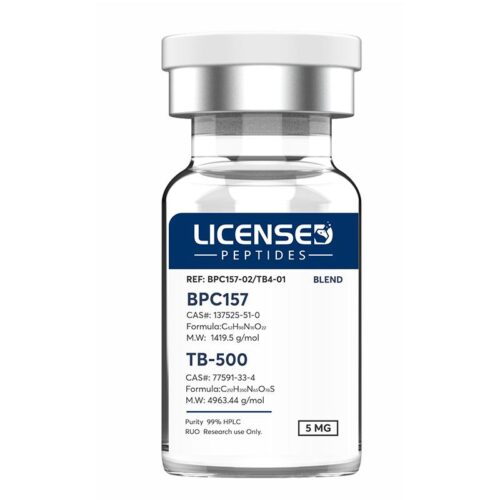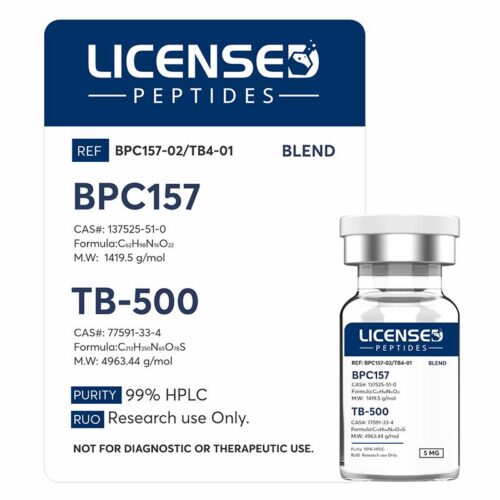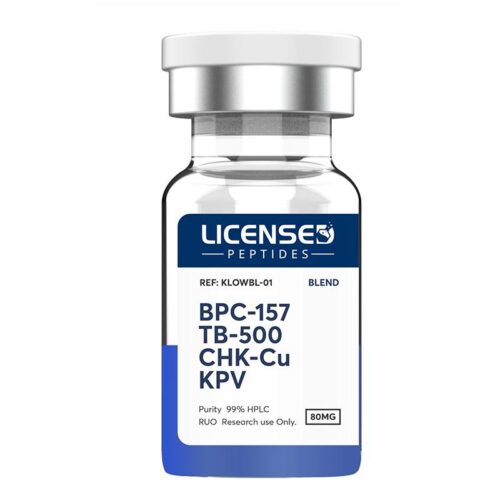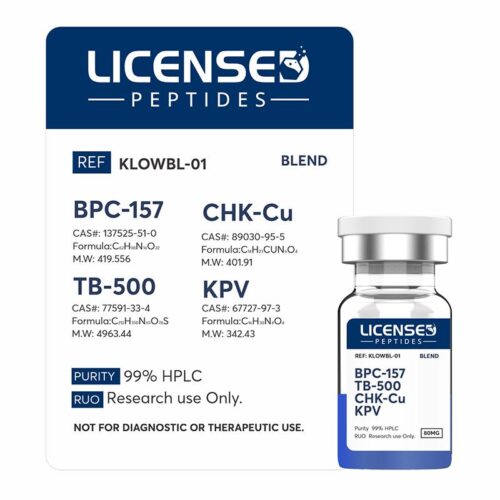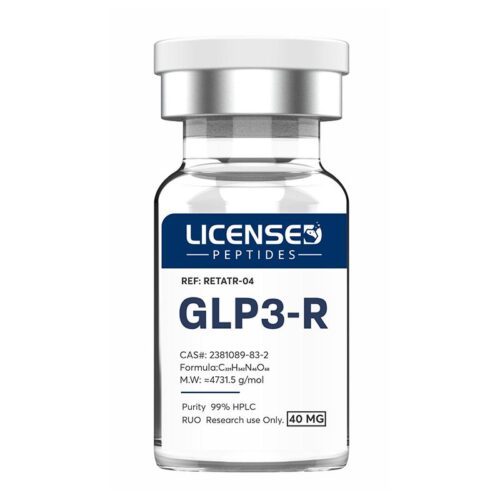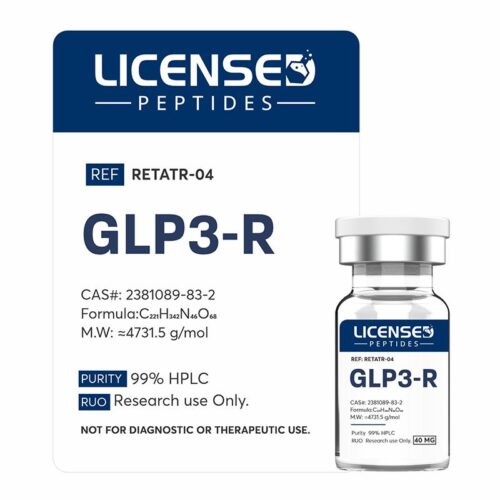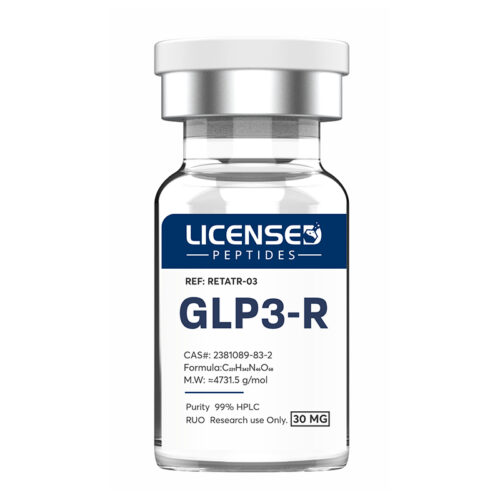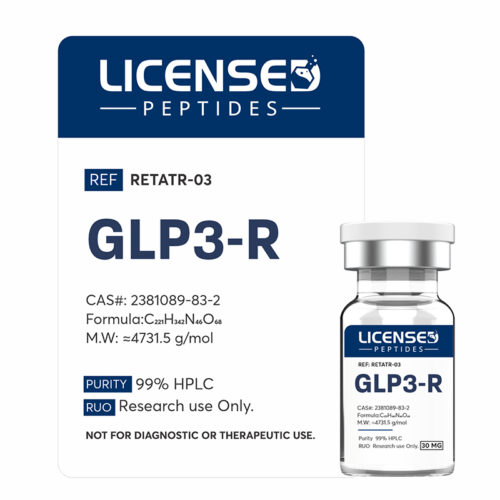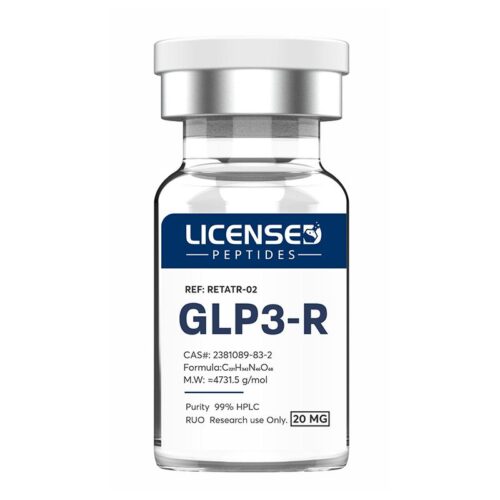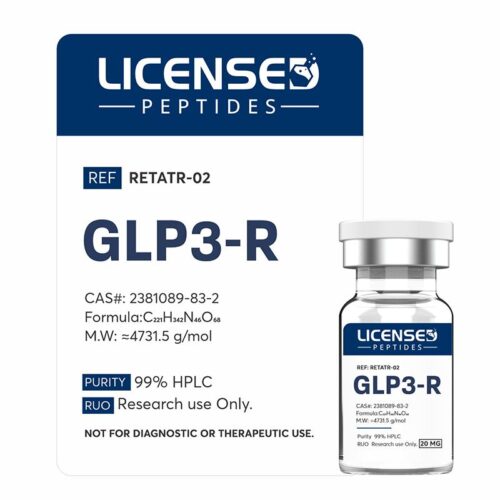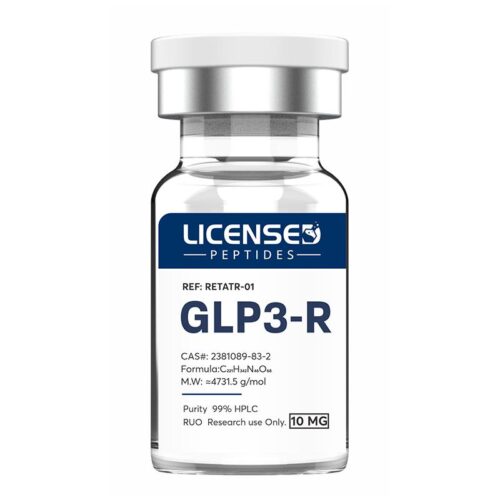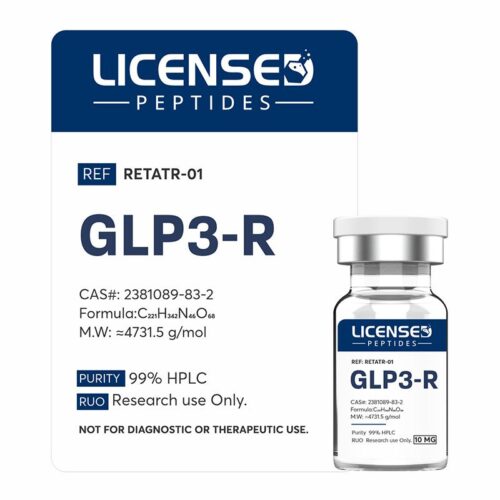-
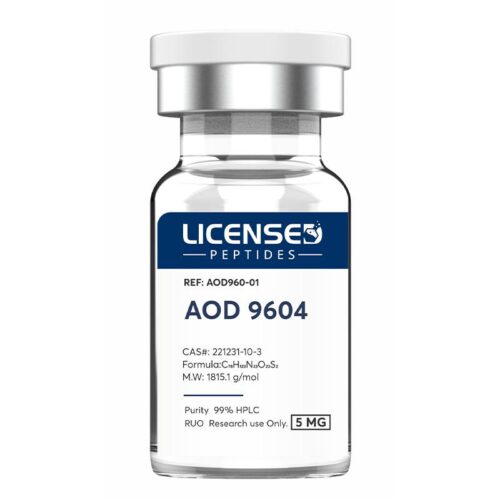
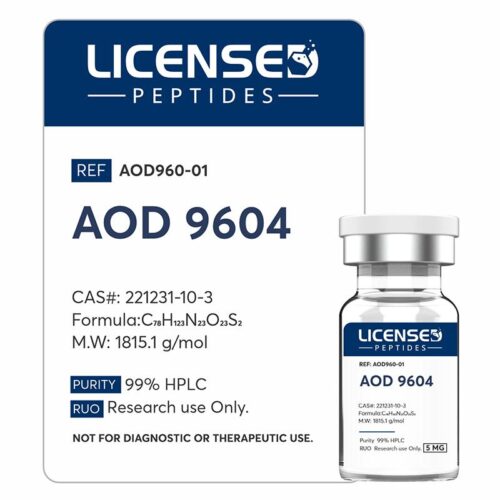 AOD9604 is a synthetic peptide fragment derived from human growth hormone (hGH), specifically from the 176-191 amino acid region of the hGH molecule. It was developed to mimic the fat-reducing (lipolytic) effects of hGH without the growth-promoting effects typically associated with the full hormone.
AOD9604 is a synthetic peptide fragment derived from human growth hormone (hGH), specifically from the 176-191 amino acid region of the hGH molecule. It was developed to mimic the fat-reducing (lipolytic) effects of hGH without the growth-promoting effects typically associated with the full hormone. -
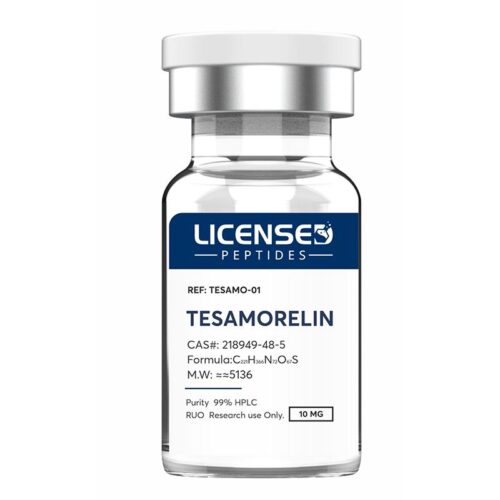
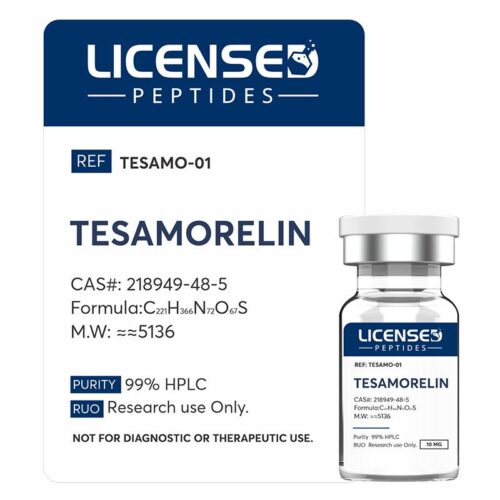 Tesamorelin is a synthetic peptide analogue of growth hormone–releasing hormone (GHRH), composed of 44 amino acids with a structural modification that enhances its stability and half-life. Although it has gained regulatory approval as Egrifta® for the treatment of HIV-associated lipodystrophy, tesamorelin is also widely investigated in the broader research context.
Tesamorelin is a synthetic peptide analogue of growth hormone–releasing hormone (GHRH), composed of 44 amino acids with a structural modification that enhances its stability and half-life. Although it has gained regulatory approval as Egrifta® for the treatment of HIV-associated lipodystrophy, tesamorelin is also widely investigated in the broader research context. -
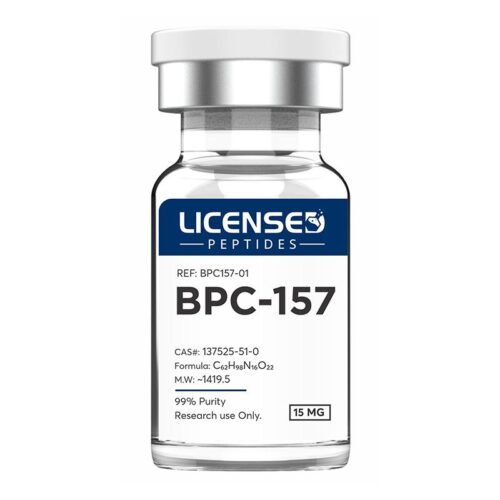
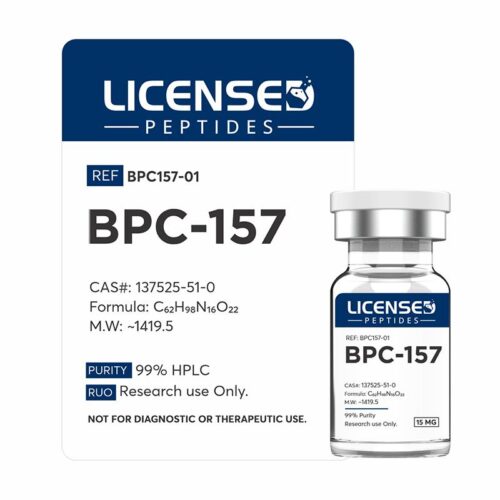 BPC-157 is a peptide made up of 15 amino acids, originally discovered in human gastric juice. Research shows that it supports faster healing of muscles, tendons, ligaments, and even skin injuries such as burns. It also helps protect organs and may prevent gastric ulcers. In the digestive system, BPC-157 has been shown to support gut health by helping with issues like leaky gut, IBS, cramps, and Crohn’s disease. In addition, it may reduce pain and speed up recovery by improving blood flow, boosting collagen production, and supporting new tissue and blood vessel growth. Because of these benefits, BPC-157 is being studied as a promising option for wound healing and overall recovery support.
BPC-157 is a peptide made up of 15 amino acids, originally discovered in human gastric juice. Research shows that it supports faster healing of muscles, tendons, ligaments, and even skin injuries such as burns. It also helps protect organs and may prevent gastric ulcers. In the digestive system, BPC-157 has been shown to support gut health by helping with issues like leaky gut, IBS, cramps, and Crohn’s disease. In addition, it may reduce pain and speed up recovery by improving blood flow, boosting collagen production, and supporting new tissue and blood vessel growth. Because of these benefits, BPC-157 is being studied as a promising option for wound healing and overall recovery support. -
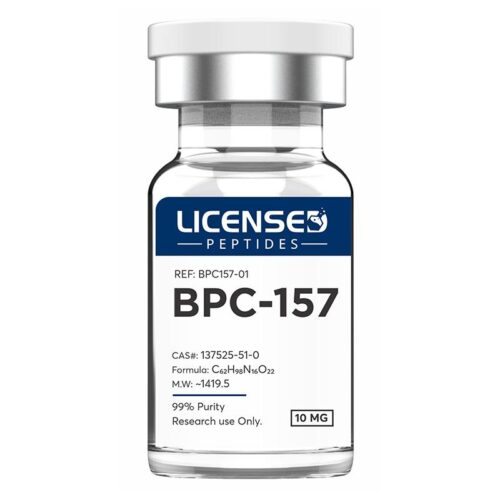
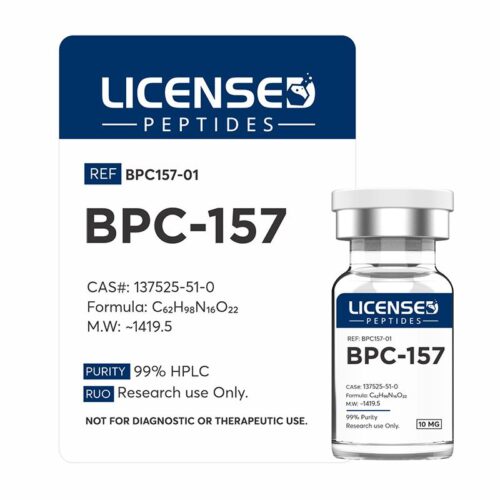 BPC-157 is a peptide made up of 15 amino acids, originally discovered in human gastric juice. Research shows that it supports faster healing of muscles, tendons, ligaments, and even skin injuries such as burns. It also helps protect organs and may prevent gastric ulcers. In the digestive system, BPC-157 has been shown to support gut health by helping with issues like leaky gut, IBS, cramps, and Crohn’s disease. In addition, it may reduce pain and speed up recovery by improving blood flow, boosting collagen production, and supporting new tissue and blood vessel growth. Because of these benefits, BPC-157 is being studied as a promising option for wound healing and overall recovery support.
BPC-157 is a peptide made up of 15 amino acids, originally discovered in human gastric juice. Research shows that it supports faster healing of muscles, tendons, ligaments, and even skin injuries such as burns. It also helps protect organs and may prevent gastric ulcers. In the digestive system, BPC-157 has been shown to support gut health by helping with issues like leaky gut, IBS, cramps, and Crohn’s disease. In addition, it may reduce pain and speed up recovery by improving blood flow, boosting collagen production, and supporting new tissue and blood vessel growth. Because of these benefits, BPC-157 is being studied as a promising option for wound healing and overall recovery support. -
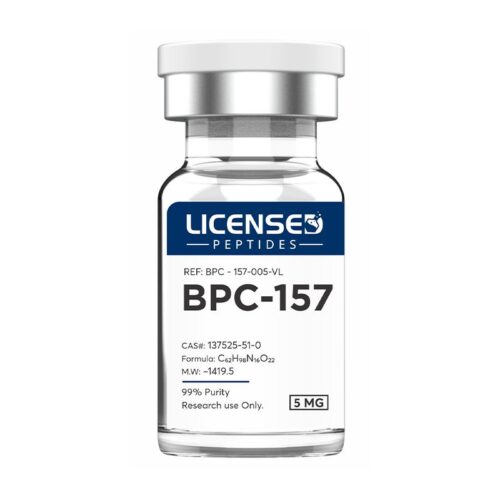
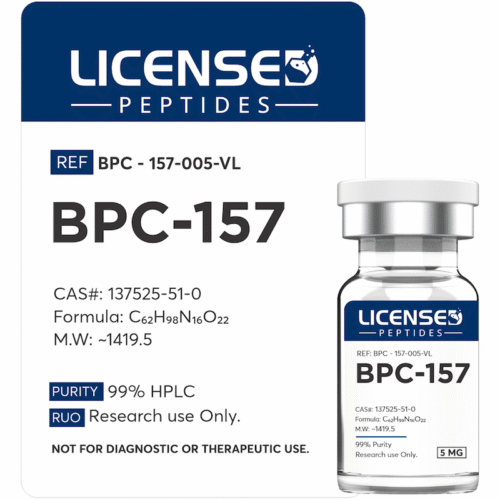 BPC-157 is a peptide made up of 15 amino acids, originally discovered in human gastric juice. Research shows that it supports faster healing of muscles, tendons, ligaments, and even skin injuries such as burns. It also helps protect organs and may prevent gastric ulcers. In the digestive system, BPC-157 has been shown to support gut health by helping with issues like leaky gut, IBS, cramps, and Crohn’s disease. In addition, it may reduce pain and speed up recovery by improving blood flow, boosting collagen production, and supporting new tissue and blood vessel growth. Because of these benefits, BPC-157 is being studied as a promising option for wound healing and overall recovery support.
BPC-157 is a peptide made up of 15 amino acids, originally discovered in human gastric juice. Research shows that it supports faster healing of muscles, tendons, ligaments, and even skin injuries such as burns. It also helps protect organs and may prevent gastric ulcers. In the digestive system, BPC-157 has been shown to support gut health by helping with issues like leaky gut, IBS, cramps, and Crohn’s disease. In addition, it may reduce pain and speed up recovery by improving blood flow, boosting collagen production, and supporting new tissue and blood vessel growth. Because of these benefits, BPC-157 is being studied as a promising option for wound healing and overall recovery support. -
 BPC-157 is a peptide made up of 15 amino acids, originally discovered in human gastric juice. Research shows that it supports faster healing of muscles, tendons, ligaments, and even skin injuries such as burns. It also helps protect organs and may prevent gastric ulcers. In the digestive system, BPC-157 has been shown to support gut health by helping with issues like leaky gut, IBS, cramps, and Crohn’s disease. In addition, it may reduce pain and speed up recovery by improving blood flow, boosting collagen production, and supporting new tissue and blood vessel growth. Because of these benefits, BPC-157 is being studied as a promising option for wound healing and overall recovery support.
BPC-157 is a peptide made up of 15 amino acids, originally discovered in human gastric juice. Research shows that it supports faster healing of muscles, tendons, ligaments, and even skin injuries such as burns. It also helps protect organs and may prevent gastric ulcers. In the digestive system, BPC-157 has been shown to support gut health by helping with issues like leaky gut, IBS, cramps, and Crohn’s disease. In addition, it may reduce pain and speed up recovery by improving blood flow, boosting collagen production, and supporting new tissue and blood vessel growth. Because of these benefits, BPC-157 is being studied as a promising option for wound healing and overall recovery support.
Need help? Call Or Text us, and a team member will be happy to assist you. +1 (570) 539-9711
Need help? Call Or Text us, and a team member will be happy to assist you.
+1 (570) 539-9711
